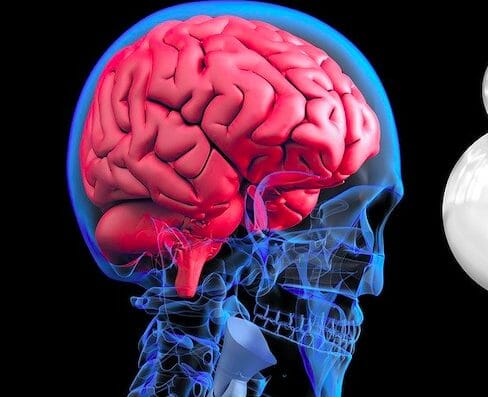Inflammation in the brain is linked to a wider range of dementia than researchers had previously thought, according to a new study. The latest findings suggest that immune-based treatment might slow neurodegenerative diseases.
In a new study, scientists at University of Cambridge examined whether brain inflammation—known as neuroinflammation—is linked to frontotemporal dementia (FTD). FTD is a group of disorders that occurs when harmful proteins like tau and accumulate around the frontal and temporal lobes of the brain. This causes the regions of the brain that are responsible for judgement calls in social situations to shrink.
The researchers assessed 31 patients diagnosed with the different forms of FTD that affect their behavior, personality and speech: 10 with behavioral variant, 11 with semantic variant and 10 with non-fluent variant. To examine FTD from early, mid to late stages, the research team conducted positron emission tomography (PET) scans on the patients and analyzed 12 brains donated to the Cambridge Brain Bank.
The team found that the more inflammation present in each part of the brain, the more build-up of harmful proteins there are in the three types of FTD.
“The correlations were very very strong so it does seem that these are intricately linked. We expected them to be associated but they are more strongly associated than I think anyone has hoped,” Dr. Thomas Cope, a clinical lecturer at the Department of Clinical Neurosciences at University of Cambridge, said in an interview with Being Patient.
Whether neuroinflammation causes the buildup of harmful proteins is unclear. Cope suggests it’s more likely that the abnormal protein causes brain inflammation, triggering a vicious cycle.
“It seems like the neuropathology of FTD and the neuroinflammation [has] a positive feedback loop—that one is making the other worse etcetera,” Cope said.
Previous research has linked brain inflammation with disorders including depression, psychosis and multiple sclerosis. Neuroinflammation is also associated with Parkinson’s and Huntington’s diseases. Scientists have recently linked neuroinflammation to the risk of Alzheimer’s.
“What’s become clear in recent years is that the inflammation is also occurring in Alzheimer’s disease,” Cope said. “What’s new about this research is we take three totally different dementias and show that the inflammation is important in all of those dementias as well.”
FTD is the most common form of dementia for people under age 60, according to the Association for Frontotemporal Degeneration (AFTD). Studies have estimated that FTD accounts for around 8 percent of patients with dementia.
The latest discovery may offer potential treatments for FTD like anti-inflammatory therapy, according to Cope.
“We’re showing that neuroinflammation is a general problem across neurodegenerative diseases and that potentially means that treating your inflammation might be a viable strategy for slowing down the progression of those diseases,” Cope said.

Is there currently a means of fighting neuroinflammation available? If so why is it not being used? If not how long before one is available?
Hi Being Patient,
I really enjoy reading your articles and am thankful for the research that is being done to help combat the disease of Alzheimer’s and dementia. I look forward to learning more about blood testing to test for Alzheimer’s early and hope to get more information on when that will be available. Thank you and have a blessed day!
~Tony Campos